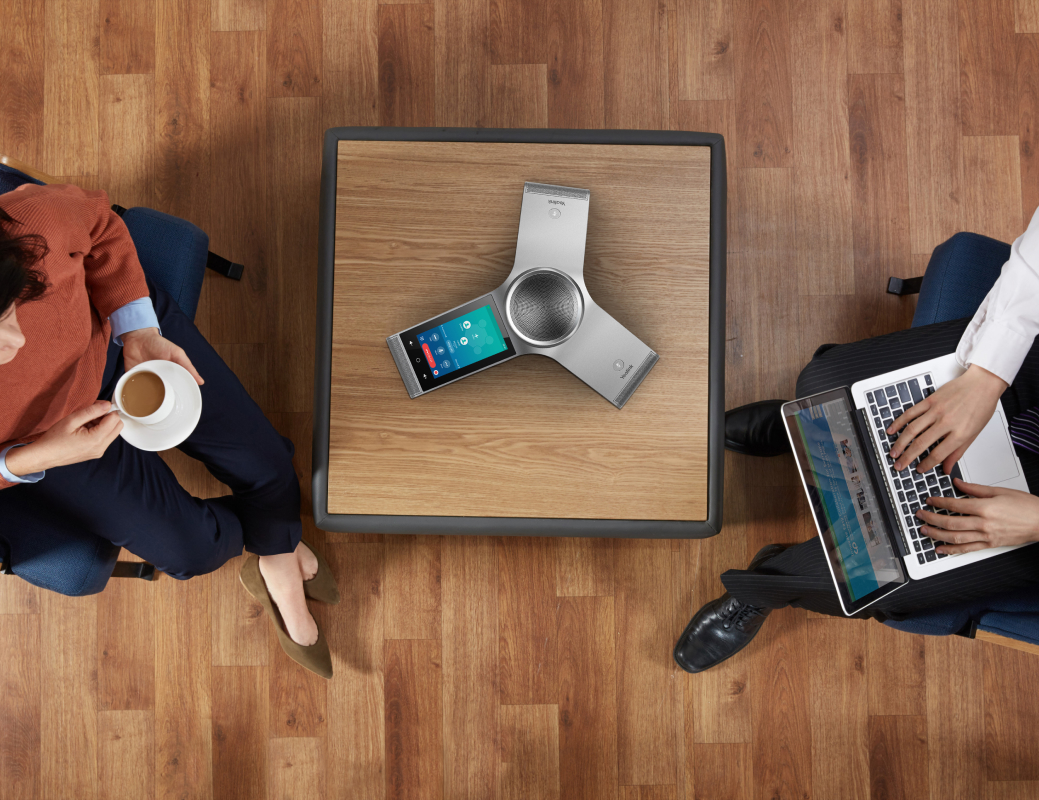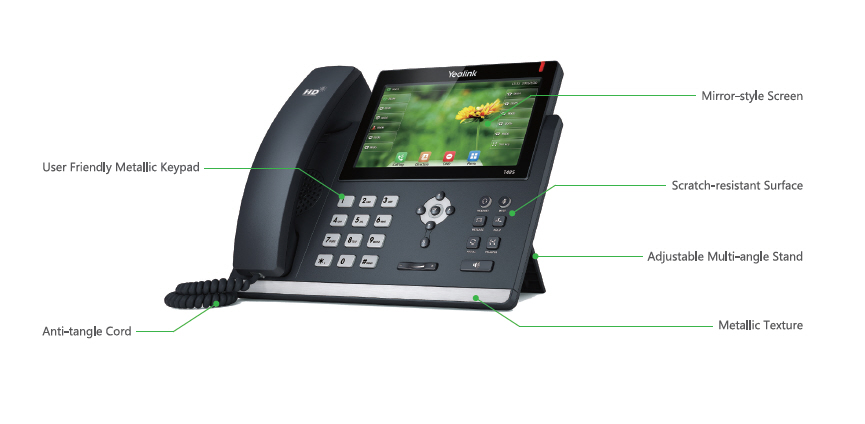In today's fast-paced, technology-driven world, a robust communication system is essential for both personal and professional interactions. Voice over Internet Protocol (VoIP) phone systems have revolutionized how we communicate, offering flexibility, cost savings, and enhanced features compared to traditional landlines. However, with these advantages come security challenges that can put your sensitive information at risk. So, how do you secure your VoIP phone system at your home office? Buckle up as we embark on an exciting journey through the world of VoIP security!
Understanding VoIP Phone Systems
What is a VoIP Phone System?
A Voice over Internet Protocol (VoIP) phone system allows users to make voice calls using the internet instead of traditional telephone lines. By converting voice into digital data packets, VoIP systems enable communication over the internet. This technology not only reduces costs but also offers advanced features like video conferencing and voicemail-to-email.
How Do VoIP Phone Systems Work?
To grasp how to secure your VoIP phone system at home office, it's crucial to understand its underlying mechanics. The process starts when a user speaks into the microphone of their device. That voice is captured and converted into digital data by the VoIP software. This data is then transmitted over the internet to the recipient's device, where it’s converted back into sound.
Benefits of Using VoIP Phone Systems
- Cost Efficiency: Lower monthly bills compared to traditional phone services. Flexibility: Ability to work from anywhere with an internet connection. Advanced Features: Includes voicemail transcription, call forwarding, and conference calls. Scalability: Easy to add or remove lines as needed.
Why Security Matters for Your VoIP Phone System
The Risks Involved with VoIP Technology
While the benefits are enticing, it’s essential to recognize the potential risks associated with unsecured VoIP systems such as:
- Eavesdropping on calls Identity theft Service interruption due to cyber-attacks
Understanding Common Threats Against VoIP Systems
SIP Attacks: Session Initiation Protocol attacks can lead to unauthorized access. Denial of Service (DoS): Attackers flood networks with excessive traffic, disrupting service. Call Interception: Hackers can listen in on conversations if proper security measures aren’t in place.How to Secure Your VoIP Phone System at Home Office
1. Use Strong Passwords on All Devices
Your first line of defense against unauthorized access is strong passwords. Ensure all devices connected to your VoIP system use complex passwords containing letters, numbers, and symbols.
2. Enable Encryption Protocols
Encryption protocols like Secure Real-time Transport Protocol (SRTP) safeguard your data during transit. Always choose a provider that offers encryption options for maximum protection.
3. Regularly Update Software and Firmware
Keeping software up-to-date ensures you benefit from the latest security patches and enhancements offered by manufacturers.


4. Implement Network Segmentation
Creating separate networks for different devices limits exposure in case one network gets compromised.
5. Use Firewalls and Intrusion Detection Systems
Firewalls serve as barriers between your internal network and potential threats from external sources while intrusion detection systems monitor network traffic for suspicious activity.
6. Monitor Call Activity Regularly
Keeping an eye on call logs helps identify unusual patterns that may indicate malicious activity.
Setting Up Your Home Office for Optimal Security
Choosing a Reliable Internet Service Provider (ISP)
A reliable ISP provides stable connections and customer support essential for maintaining security protocols effectively.
Configuring Your Router Settings Correctly
Ensure that you disable unnecessary ports and services in your router settings—a simple yet effective measure against potential breaches.
Router Configuration Checklist:
- Change default login credentials Disable remote management Enable Network Address Translation (NAT)
Best Practices for Securing Your Home Office Communication
Training Employees on Security Awareness
If you manage a team working remotely via a VoIP phone system, training on recognizing phishing scams is vital—after all, awareness is key!
Using Virtual Private Networks (VPNs)
Implementing VPNs encrypts all communications between devices within your home office network and external networks.
Advanced Security Measures for Tech-Savvy Users
Multi-Factor Authentication (MFA) Implementation
Adding another layer of security through MFA makes it much harder for hackers to gain unauthorized access.
Regular Security Audits
Conduct regular assessments of your security measures—this proactive approach helps identify vulnerabilities before they become problematic.
The Role of IT Professionals in Securing VoIP Systems
If you're not tech-savvy or don’t have time for extensive monitoring yourself, consider hiring an IT professional who specializes in cybersecurity measures tailored specifically for VoIP systems.
Troubleshooting Common Issues with Secured VoIP Systems
Sometimes even well-secured systems encounter issues; here are some common problems users face:
Call Quality Problems Inability to Connect Calls Unexpected DisconnectionsFor each issue:
- Ensure bandwidth isn't being consumed by other applications. Check if firewall settings block necessary ports.
FAQ Section
Q1: What are some signs my VoIP phone system has been hacked?
A1: Unusual call activity or unexpected charges on your bill could indicate unauthorized access.
Q2: Can I secure my home Wi-Fi network without professional help?
A2: Yes! Changing default passwords and enabling WPA3 encryption will significantly enhance Wi-Fi security.
Q3: How often should I update my passwords?
A3: It's best practice to change passwords every three months or immediately after any suspicious activity occurs.
Q4: Is using public Wi-Fi safe for making business calls?
A4: Public Wi-Fi can expose you to risks; always use a VPN when accessing sensitive information over public networks.
Q5: What type of encryption should I use?
A5: Opting for SoundCurve - Business Phone Systems VoIP Phone System Las Angeles SRTP or TLS will provide adequate protection for most scenarios involving voice communications.
Q6: Are physical security measures also important?
A6: Absolutely! Protecting hardware against theft or tampering is just as crucial as digital security measures.
Conclusion
Securing your VoIP phone system at home office doesn’t need to be overwhelming! By taking proactive steps like using strong passwords, enabling encryption protocols, updating software regularly, and training employees about cybersecurity awareness, you can create a fortified environment that protects sensitive communications while allowing you the flexibility that modern technology provides!
So gear up! With this knowledge under your belt about how to secure your VoIP phone system at home office, you're well-equipped to fend off cyber threats while enjoying all the perks of this innovative communication method! Stay connected securely!
